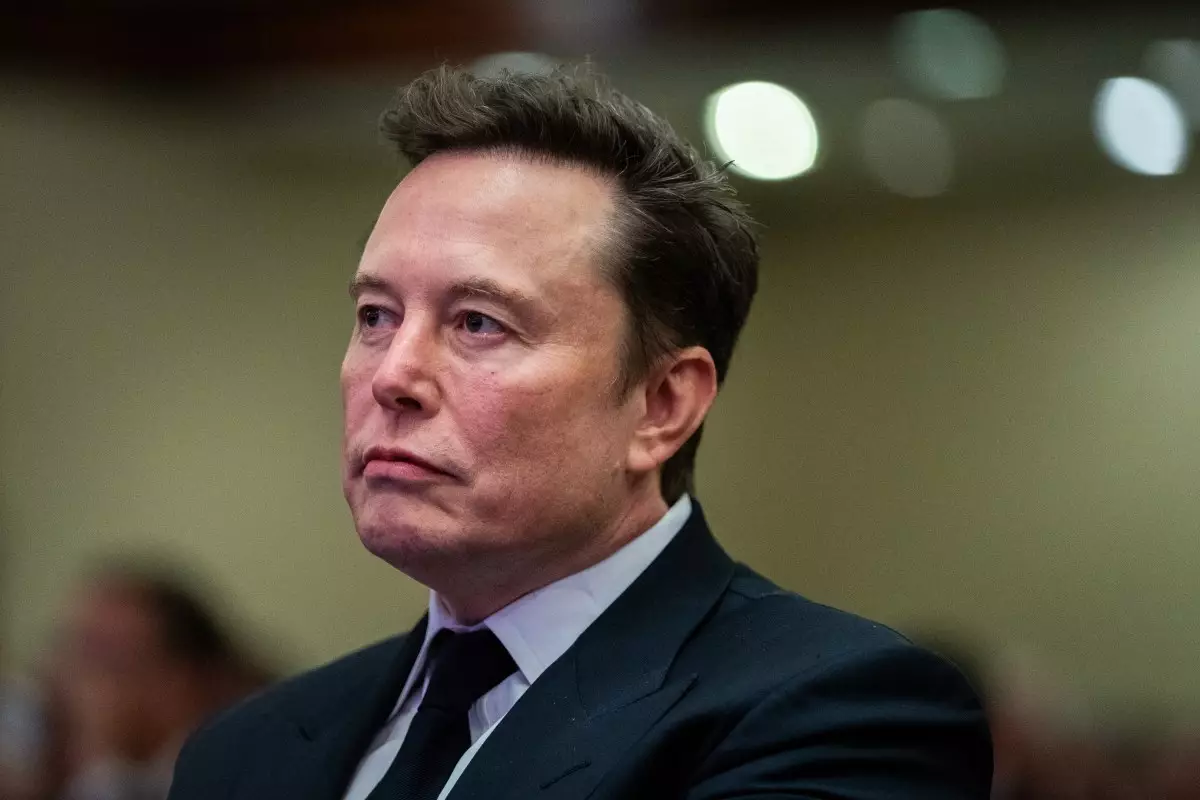In a dramatic turn of events, tech mogul Elon Musk has escalated his conflict with OpenAI, the artificial intelligence research organization he co-founded, by filing for a preliminary injunction against the company, its prominent co-founders, and its significant investor, Microsoft. Musk’s legal team claims that these entities are involved in anticompetitive practices that could hinder innovation and suppress competition in the AI sector, particularly targeting Musk’s own AI venture, xAI. The implications of this dispute resonate deeply within the tech industry and raise substantial questions about the ethics governing AI development.
The lawsuit, lodged in the U.S. District Court for the Northern District of California, asserts that OpenAI, led by CEO Sam Altman and President Greg Brockman, along with Microsoft and other defendants, are engaging in a series of illicit activities designed to undermine competition. Musk’s filing lists several grave allegations, such as persuading investors not to support competing firms, including xAI, and allegedly misappropriating competitively sensitive information.
At the heart of Musk’s argument lies a profound concern for the integrity of OpenAI’s original mission: to democratize the benefits of artificial intelligence. Musk contends that the shift in OpenAI’s governance structure to a profit-driven entity compromises its nonprofit ethos, undermining the ethical foundations upon which it was built. The injunction aims to preserve what remains of this nonprofit character, preventing so-called “self-dealing” by its leaders and protecting the interests of the public.
The Stakes for xAI and Competitive Landscape
Musk’s xAI, launched in 2022, represents an ambitious endeavor to advance AI technology. Despite potential funding challenges stemming from alleged coercive practices by OpenAI and Microsoft, xAI recently succeeded in raising an impressive $5 billion, demonstrating strong market interest and backing from reputable investors like Andreessen Horowitz and Fidelity. This speaks to the duality of the AI landscape, where innovation continues to flourish amid highly competitive dynamics.
The legal battle underscores the tensions in the AI sector, where rivalries can quickly escalate into significant disputes. Musk asserts that OpenAI’s tactics directly interfere with xAI’s ability to secure funding, curatorily limits investor options, and threatens the vitality of competition in the field. Musk’s attorneys accused OpenAI of resorting to a so-called “gentleman’s agreement” with investors to deter them from supporting rival ventures like xAI, hence impeding the normal competitive functions essential for a thriving marketplace.
The complexities of Musk’s lawsuit are further heightened by the multitude of stakeholders involved. The legal filings name a spectrum of defendants, including Reid Hoffman, a co-founder of LinkedIn and a former board member of OpenAI, and Dee Templeton, a Microsoft executive closely affiliated with OpenAI. Musk’s legal team argues that these individuals’ overlapping interests create substantial conflicts and risks of antitrust violations, particularly emphasizing Hoffman’s unique vantage point on the operations of OpenAI due to his ties with both organizations.
As relationships blur between tech giants and their investments, concerns about transparency and market manipulation come to the fore. Musk’s accusations suggest a troubling intertwining of corporate interests that could lead to compromised ethics in AI development. His attorneys underscore the potential ramifications if OpenAI’s activities remain unchecked, warning that a lack of regulatory oversight could cement monopolistic practices detrimental to public interest.
The motion for a preliminary injunction advocates for an immediate freeze on OpenAI’s business practices that allow self-benefiting activities to continue unimpeded. Musk’s team posits that immediate action is crucial to prevent “irreparable harm,” cautioning that the trajectory of OpenAI may veer too far from its initial missions. They contend that without judicial intervention, OpenAI’s evolution into a purely profit-oriented organization could lead to significant long-term consequences for the general public’s access to the benefits of AI research.
In their appellate language, Musk’s counsel argues that a failure to grant the injunction could precipitate a state of affairs where OpenAI lacks the financial resources to compensate Musk for potential damages derived from these alleged anticompetitive practices. Such a scenario raises pressing questions about the sustainability of ethical AI development, a topic increasingly scrutinized in light of emergent technologies and their societal impacts.
The Future of AI and Competitive Dynamics
Elon Musk’s legal maneuver in this unfolding saga reflects broader tensions within the burgeoning AI industry, where questions of competition, ethics, and accountability come to a head. As the case progresses, it serves as a litmus test for how regulatory bodies and courts will navigate the fast-evolving landscape of AI. The resulting judicial decisions may set critical precedents, guiding not only the future operations of OpenAI and xAI but also influencing how technology firms interact with one another in this increasingly competitive arena.
As this legal battle continues, the stakes for all parties involved remain high. The future of AI development rests not just in technological advancements but also in the frameworks that maintain ethical standards and promote fair competition in an arena that is vital to societal progress.

